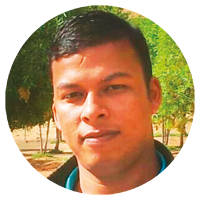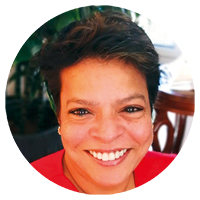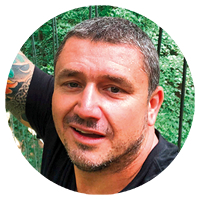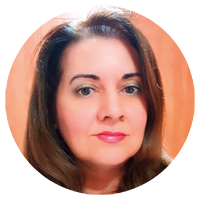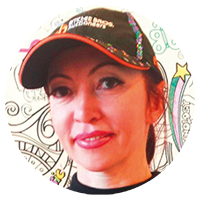Althea Kaushal
Bollywood scriptwriter, Dubai resident and mother of two school-going daughters
“ I realised I was a lark af ter I had my kids – Tarini, 14 and Maia, 10. I wanted to devote time to them and so I began waking up at 4 am. The moment I wake up, I am up and about. I am most lucid from 4-6 am. The house is quiet, I am distracted by nothing, and I am able to ideate best in these two hours. By afternoon, post lunch, I am a wreck. By 8 pm, I am sleepy and my daughters and I go to bed by 8.30pm. “
Read more:
Will chronotypes impact future employment policies?
Does the 9-5 workday maximise efficiency?
Shane Manning
Entrepreneur, runs event management companies
“I have been on both sides of the fence. Starting my business I was pretty much hands-on, organising shows from 8am in the morning , working through the night winding up concerts, driving down from Abu Dhabi and reaching home only by dawn. Once the business grew and as a father of growing triplets, I realised I needed a more structured life.
So I changed into being a lark. Now I am up by 4.30 am and go for my personal training six days a week which could be cycling, jogging, pilates or whatever. This energises me and makes me productive throughout the day. I feel I think clearly being an early riser and am able to handle stress better. I wind up my day by 9 pm and am in bed by 9.30pm.”
Dipak Thakuri
33
taxi driver, from Nepal
“With me its early to bed, early tomaria rise, so I can assume I am a lark. I feel more energetic in the mornings. I believe there should be flexible working hours so people are at their most productive during that time. Working during one’s favourite productivity hours leads to better results.”
Wilma Burton
Painter,
from the US
“Sometimes I become very productive in the mornings, sometimes it’s the evenings. Other times, I spend the whole night painting. [I don’t think] all people work with similar efficiency all the time at the workplace.”
Marianna Bubnova
44, yoga instructor, from Uzbekistan
“I love working in the early hours of the day, it gives me the highest level of energy. I believe every individual should realise the worth of the time of day that yields them the best results.”
Famous owls
“I was never a morning person,” Mark Zuckerberg, Facebook founder. He reportedly rises around 8am in line with hacker hours that prevail in Silicon Valley.
“The most productive coders I know — and writers and probably a lot of other creatives tend to do a lot of their best work when others are asleep, at times that coincide with the fewest inbound distractions.” Tim Ferriss, the life-hacking author and tech investor
Aaron Levie, chief executive of cloud company Box, usually sleeps between 3am and 10am. “I don’t use many apps,” he said. “I use naps.”
Alexis Ohanian, co-founder of Reddit, usually goes to bed around 2am and rises around 10am or whenever his cat wakes him up.
And the case for night owls
In 2009, Satoshi Kanazawa, a provocative evolutionary psychologist from the London School of Economics and Political Science, inspired many headlines with a study that attempted to suggest that night owls may be more intelligent than larks. A 2014 University of Chicago study found that night owls were “associated with greater general risk-taking” in matters of finance, ethics and leisure.
Famous larks
Robert Iger, CEO, Disney (4-4.30am)
Howard Schultz, ex-CEO, executive chairman, Starbucks (4-4.30am)
Indra Nooyi, ex-chief executive, PepsiCo (4-4.30am)
Tim Cook, CEO, Apple (3.45am)
Heard of ‘energetic asynchrony’?
Chronotype diversity is starting to find traction as business managers explore staggered work schedules (energetic asynchrony) to make sure all workers are working at peak efficiency. “Companies can use the knowledge about circadian rhythms as a competitive advantage,” Camilla Kring, a Danish business consultant and author, said.
The end of the 9-5?
The traditional 9-to-5 workplace is starting to fall out of favour, especially in Silicon Valley and creative sectors where the workday is no longer tied to daylight hours. And, with robots and artificial intelligence further eroding the old system by taking over the routine tasks, the new workplace culture is less about punctuality and more about creativity and breaking the rules.


